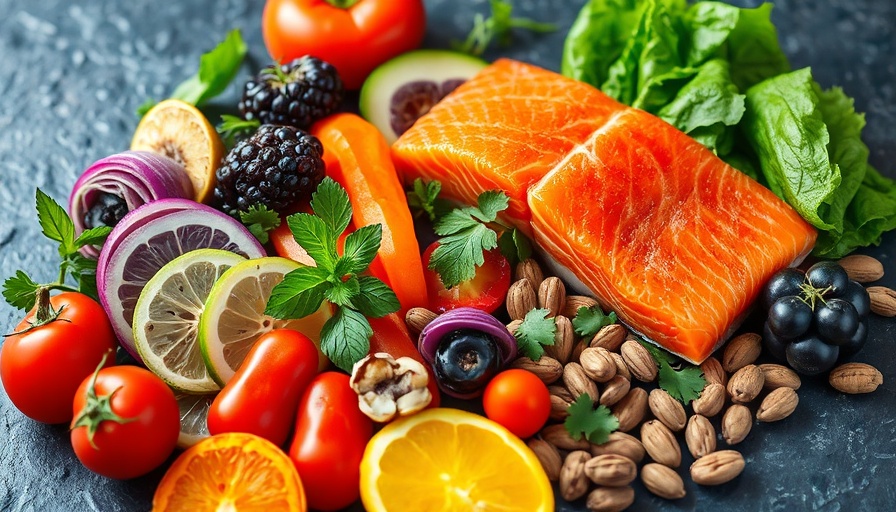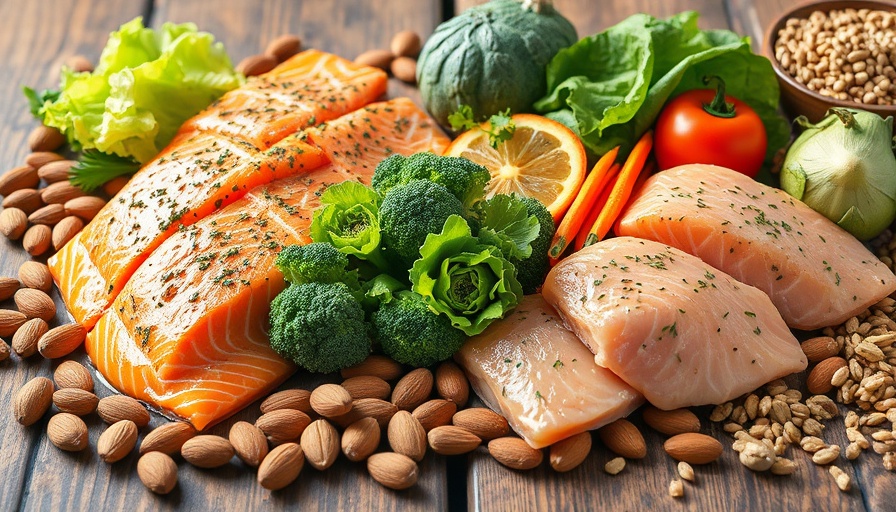
The Ageless Pursuit: Understanding the Best Diet for Aging
As we age, maintaining our health and vitality becomes ever more important. A recent study surveying 100,000 individuals over a period of 30 years sheds light on how our dietary choices impact our longevity. But what exactly is the best diet for aging gracefully? This compelling research helps us pave the way for healthier lifestyles and enhanced well-being.
Nourishment: The Key Player in Longevity
The study emphasizes that certain foods not only support longevity but also improve overall health. A Mediterranean-style diet rich in fruits, vegetables, whole grains, lean proteins like fish, and healthy fats from sources such as olives and nuts stands out as highly beneficial. This diet is not just a trend; it’s a practical approach rooted in rich cultural traditions and backed by science. For men aged 35-55, where metabolic rates and hormonal balance start to shift, this dietary style provides essential nutrients while promoting heart health and cognitive function.
A Dive into the Study’s Findings
The key findings reveal that participants who adhered closely to the Mediterranean diet reported lower rates of chronic disease and healthier aging. This suggests a strong link between dietary choices and the prevention of common age-related conditions such as heart disease, diabetes, and cognitive decline. For many professionals balancing work demands and personal life, integrating this diet could foster not just longer life but a more vibrant, active one.
Making Healthier Choices: Practical Tips
Incorporating the elements of the Mediterranean diet doesn’t require an overhaul of your current eating habits. Start with small, manageable changes:
1. **Add More Fruits and Vegetables**: Aim for at least 5 servings a day. Make smoothies or salads to sneak them into your diet effortlessly.
2. **Opt for Whole Grains**: Swap white rice and bread for brown rice or whole-grain alternatives.
3. **Choose Lean Proteins**: Incorporate more fish and plant-based proteins into your meals.
4. **Stay Hydrated with Water**: Limit sugary drinks and substitute with herbal teas or water infused with fruits.
Social Connections: The Often Overlooked Factor
While food is crucial, the social aspect of eating cannot be underestimated. Sharing meals with friends and family or engaging in community dining experiences can enhance not just nutrition but also mental health. For men who often prioritize work, fostering these connections transforms eating from a mere necessity to a joyful occasion, which can enhance our emotional well-being.
Future Insights: What Comes Next?
As research continues to unveil the benefits of healthy eating, it is essential to cater these findings to modern lifestyles. The intersection of technology and diet promises innovative solutions for meal planning and grocery shopping that streamline incorporating healthier options into daily routines. Imagine apps that not only provide recipes but also tailor shopping lists based on personal health goals!
The Bigger Picture: Exploring Overall Well-Being
Understanding how nutrition affects aging isn’t just about adding years to life; it’s about adding life to years. Fitness, mental health, and social engagement all create a holistic approach to aging well. Combining this with regular exercise tailored to your preferences can intensify the effects of a balanced diet. Whether it's a morning run, weightlifting, or yoga, movement is key.
Conclusion: Taking the First Step
Being proactive about your health can yield remarkable results. The insights from this research serve as both a guide and a motivator to embrace a nutrition-rich lifestyle. So, why wait? Start today by incorporating one or two elements from the Mediterranean diet into your meals. Small changes can create lasting habits that enhance your life quality and empower you to age with grace. Remember, it’s not just about longevity; it’s about thriving!
 Add Row
Add Row  Add
Add 




Write A Comment